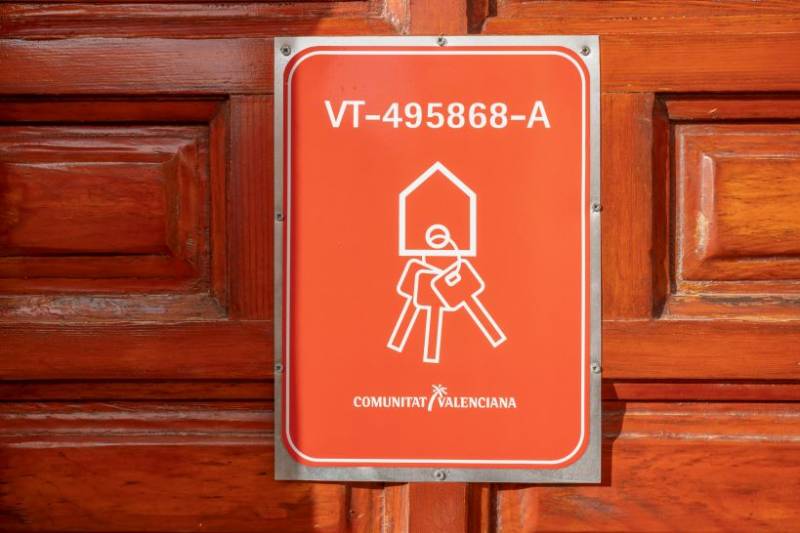Date Published: 20/01/2025
How Valencia is restricting holiday lets and why it means Costa Blanca vacations are about to get a lot more expensive
New laws restricting the activities of short-term rental properties could have a serious effect on the Valencian economy, warns Technical Architect John Kirby
by John Michael Kirby, Technical Architect and Building Engineer
Just a couple of weeks ago, we did a
deep dive into the new laws affecting – and in some cases banning completely – short-term holiday lets in the Valencia region. Since then, two more laws have been published: a
revised version of the LPH and
Real Decreto 1312/2024, both of which further restrict and radically overhaul the short-term holiday rental market. In the case of the modification of the LPH, it is likely to completely stop any new properties entering the market after April 2025.
As do the previous two laws, they also introduce new obstacles for investors interested in buying with a view to either cover the fixed costs of their holiday property or producing an income stream from which to live. The potential danger this poses for the long-term damage to the Valencian economy is immense.
Approximately 80% (78.9%) of second homes, holiday homes, were sold to foreigners in 2022 in the Valencia region. This means that villages here fill up at a rate of 4:1 with foreigners in holiday periods and any law that affects the financial viability of those holiday homes will undoubtedly disproportionately affect foreign investors. Should foreign investors be dissuaded and move their investments to the many alternative locations available, it would signify total and immediate devastation of the second home market and the construction sector as a whole in Spain.
What’s more, as 28% of all income from the tourism sector in the Valencia region comes from friends and family visiting expat property owners, these actions directly threaten the number one employment sector for the region: tourism.
Just by following the simple rules of market mechanics, supply and demand, there is every reason to suppose that as a result of the new short-term holiday let restrictions Spain is going to become a very expensive place to take a short holiday in 2025.
Furthermore, as tens of thousands of holiday rental properties in each region, each with potentially hundreds of reservations are deregistered due to the restrictions there is a high likelihood that the Spanish holiday market will be thrown into chaos in 2025.
In popular destinations at peak periods, hotel occupation is already at a 100% or very close to it. Consequently, they do not have the capacity to absorb the demand from the lost short term let properties. Especially in areas such as Valencia and Barcelona where there are currently moratoriums/bans on new hotel and VUT licenses (Vivienda de Uso Turístico), VUT are properties dedicated to short-term holiday lets.
As a result, many of those hundreds of thousands of cancelled reservations from deregistered VUT will not be able to be re-booked and as we will see those that can are likely to face drastically increased prices.
With no new hotel capacity this reduction in the supply of properties offering short term lets by decree will inevitably lead to increased demand for hotel rooms. The cost of holiday accommodation in Spain is inevitably going to rise in 2025 and it will rise in direct proportion to the success of the new regional and national anti-VUT policies introduced.
As a result of the new regional law 9/2024 and now two new national laws, Real Decreto 933/ 2021, which despite its name came into effect just a month ago (02/12/2024), and Real Decreto 1312/2024 which came into effect this month (02/01/2025), and a modification of the pre-existing national law (LPH) governing property with common elements (flats, apartments, complexes) there will be far fewer properties in the short-term holiday let market. This radical fall in supply will naturally drive short-term holiday let prices skyward in the immediate future, in reality in just a question of months.
In some cases the explicitly stated desired impact of the new laws is to reduce the supply of this type of property due to its perceived inflationary effects on the property market as a whole. That claim doesn’t stand up to even the most superficial examination. There are just over 3.2 million residential properties in the Valencia region and a mere 100,000 properties dedicated to short term holiday lets (VUT). So VUT represent just 3% of the housing market yet we are invited to believe that the short-term holiday rental tail is in reality wagging the whole real estate dog.
Decreto 9/ 2024 and Real Decreto 933/ 2021 were studied in depth in the previous articles. The modification to the LPH will, after April makes it virtually impossible for any new VUT to exist. It makes the explicit approval of the Home Owners Association a requirement, as opposed to showing that the statutes do not exclude the VUT use. A supreme court decision in 2024 already allowed for that use to be prohibited by a 3/5 majority.
Real decreto 1312/2024 which came into effect this month (02/01/2025) creates a conflict between the national law and some regional law, including the Decreto 9/ 2024 in the Valencia region. The national law 1312/ 2024 allows activities, such as the rental of rooms (B&Bs) which are forbidden by the regional law. The hierarchy is clear and it’s totally counter-intuitive. Clause 9 in the national law states that the conditions in the regional law prevail. Hence the higher-level law gives up its power to shape the activity. There will, therefore, be no uniformity in criteria across the regional authorities; there isn’t currently and this national law does nothing to rectify the situation. It would require further modifications to the national law which doesn’t even come into effect until half way through the year June 1, 2025 to avoid those conflicts.
The VUT reduction strategy is clearly against the expressed wishes of those sectorial associations such as AVATCYL which recently denounced the changes in the Supreme Court and stated “No one has yet talked to the protagonists.” How is this possible? Imagine a reform of the banking sector without consultation with any financial institutions. This is far worse than that. This is the most important employment and investment sector the Spanish economy has.
The strategy is seen by many as a knee-jerk reaction to small, uninformed public protests, the same ones that vilified tourists in general and sprayed them with water last summer. It was decided upon by a small group within the public administration, but it negatively affects expat residents, our friends and family that come to visit us and foreign investors as a whole. What’s more, it is founded on an economic premise which is wholly wrong.
In short Spain, in particular the Valencia region, ceteris paribus (if nothing changes) is headed for a destructive self-induced structural inflationary spiral, as well as a holiday reservation cancellation storm, in the next six months the like of which has never been seen in the international market. The reputational and economic damage caused by the reservation uncertainty could take a very long time to recover from. However, the structural inflation built into holiday costs combined with the dissuasive effects on the financial viability of holiday investment properties may never dissipate; it attacks the very foundation of the regional and national economy.
John Kirby is a Technical Architect and Building Engineer (UPV), having won the award for outstanding academic achievement. He is the first foreigner to win that award and the only foreigner to ever be Municipal Technical Architect in Spain and a Judicial Property expert witness in Spain. He is Commisioner for Expatriates of the Valencian government and Ambassador for Spain and Gibraltar for Chartered Association of Building Engineers (UK).
article_detail

|











